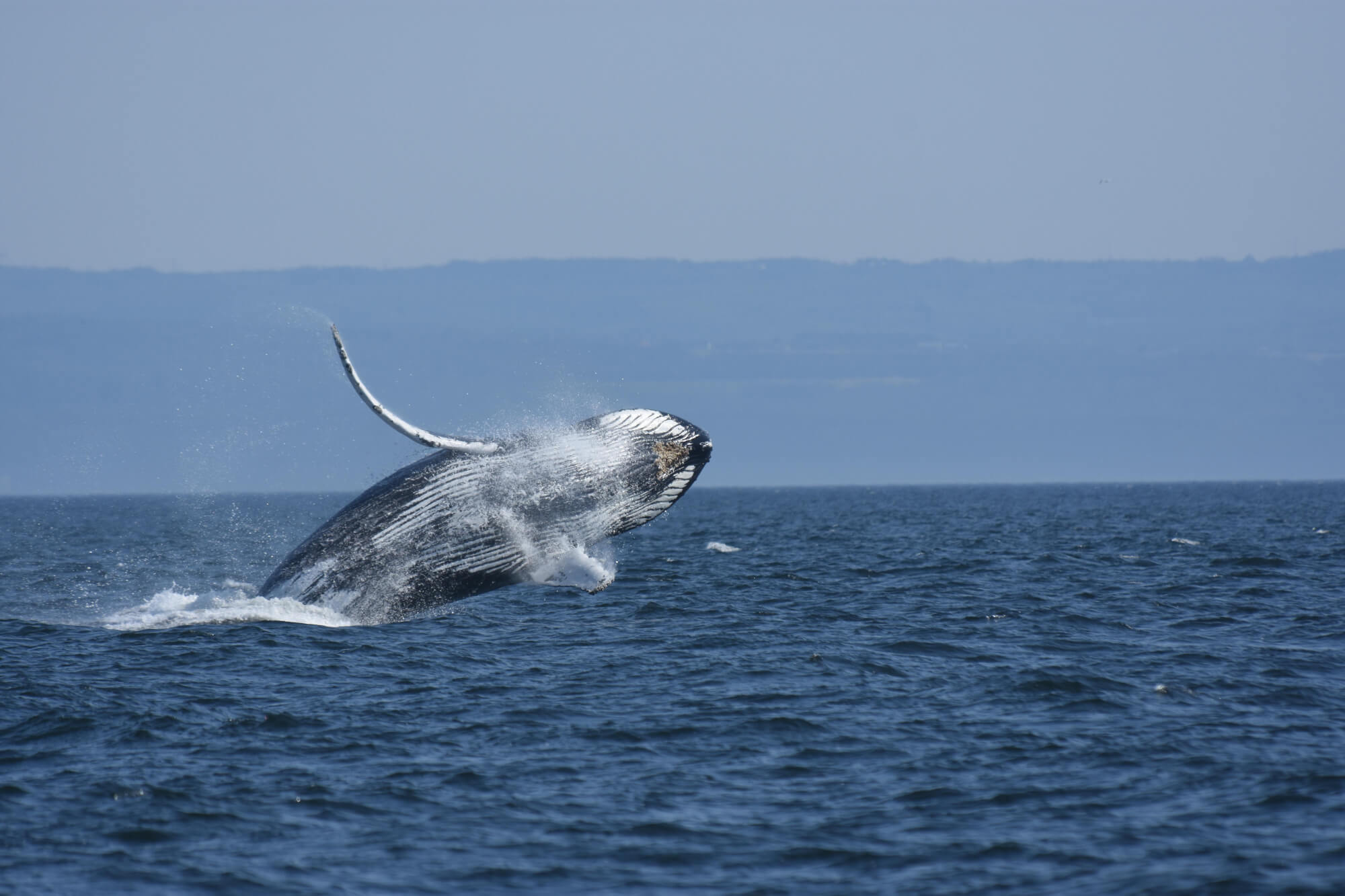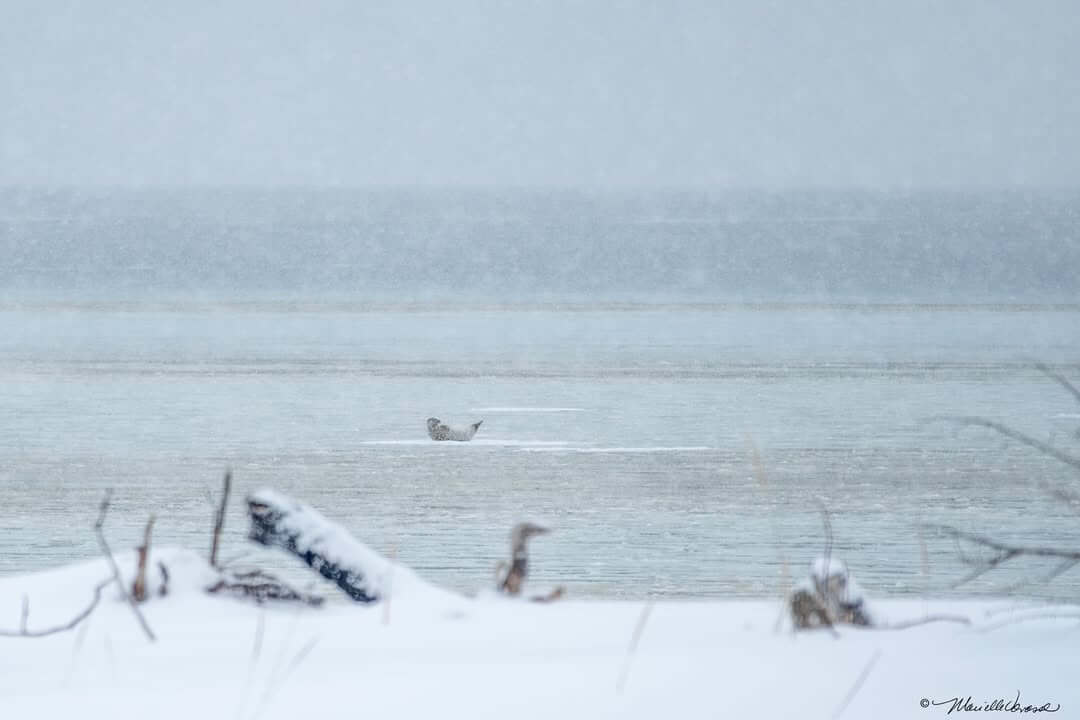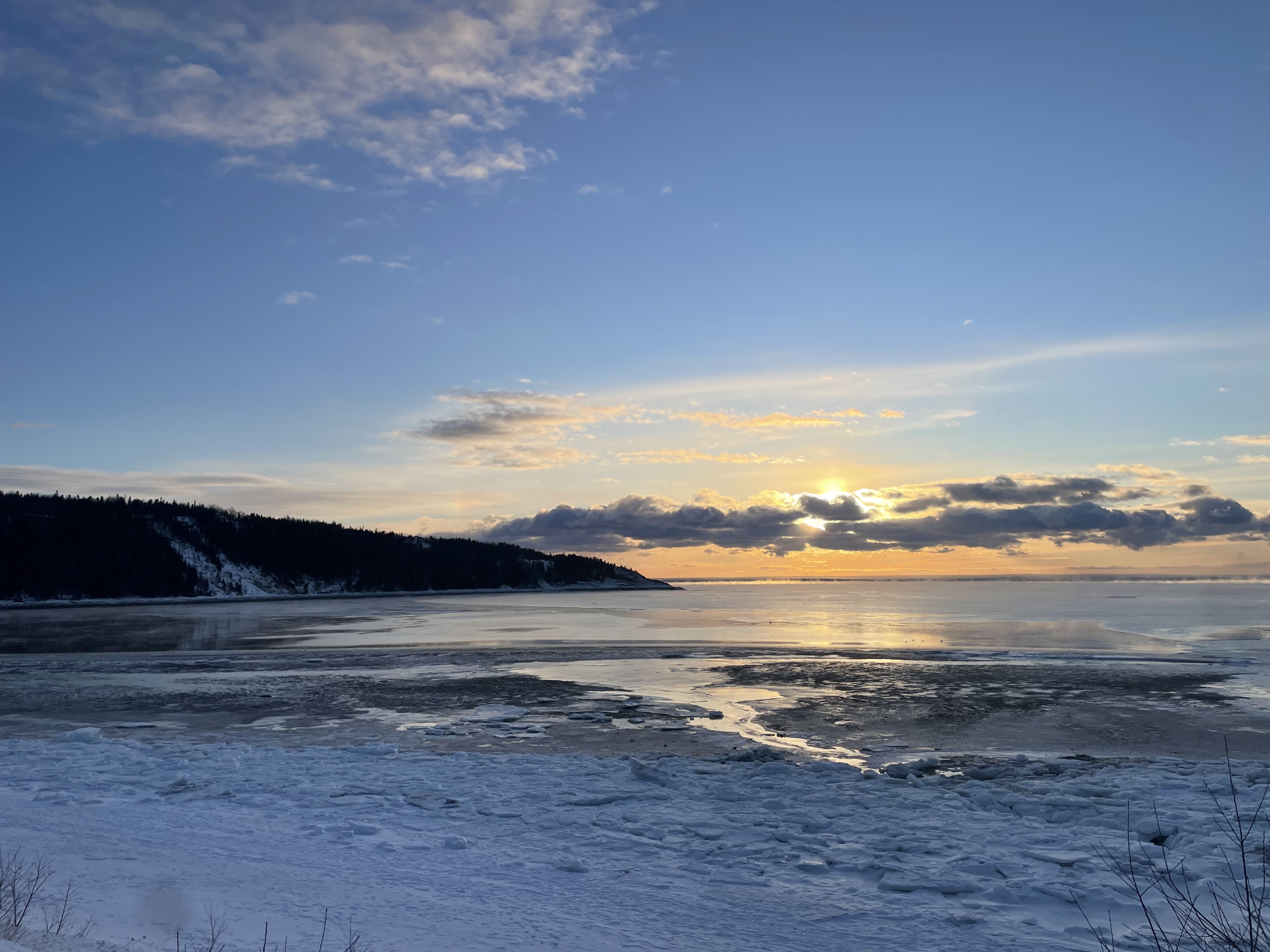Thirty-three! Thirty-three times, a minke whales breached before a dumbstruck observer standing on the pink granite of Pointe Rouge overlooking Tadoussac Bay. On September 14, this minke whale also dazzled observers sitting at the marina before it entered the Saguenay, where visitors to the Marine Mammal Interpretation Centre also had a chance to enjoy the show. Acrobatic minke whales display a variety of hunting techniques that may sometimes include spectacular breaches.
On September 17, an observer for Parks Canada embarks on a Zodiac to identify the species encountered. Off the coast of Les Bergeronnes and Cap de Bon-Désir, the repeated breaches of a humpback whale catch her eye. For over half an hour, the same whale breached about fifty times! It executed full breaches and half breaches, as well as repeated tailslapping. “Never before had I seen such high-tempo tailslapping!”, exclaimed the technician. As she leaves the site of observation, she spots another humpback arrive. One of the hypotheses put forward to explain the function of breaches is that they facilitate long-distance communication, especially in inclement weather. Is this what happened?
In Percé, it is rather tuna – probably Atlantic bluefin tuna – that are hurling their bodies out of the water. These massive fish (270 cm long and 400 kg or more) migrate into the waters of the St. Lawrence to feed. Like dolphins, tuna are powerful swimmers that can reach speeds of up to 30 km/h. In comparison, dolphins can reach peak velocities of between 25 and 45 km/h, but their cruising speed is closer to the order of 15 km/h. White-sided dolphins are also known for their aerial acrobatics. Tuna only display such feats on occasion.
On September 14, about ten fin whales were sighted 4 nautical miles off Île Plate and on September 16, three fin whales, one humpback and nearly a dozen white-sided dolphins swimming in circles around the whales were observed. “The water was so clear, we could see the dolphins through the waves. It was gorgeous!”, exclaims one naturalist.
On the other side of the St. Lawrence, near Gaspé, observers are treated to the sight of a hundred or so white-sided dolphins. In addition, there are porpoises and minke whales. “On several days we also identified the humpback Irisept,” reports one captain. He also notes that the blue whales he had been seeing for a few weeks have not been spotted in three days.
Off the coast of Sainte-Anne-des-Monts, as they enjoy the last warm days of September, two observers cross paths with a pair of minke whales.
Off Matane and opposite Baie-Comeau, René Roy, collaborator from the Mingan Island Research Station and Whales Online, encounters two blue whales swimming together, a male and a female. He also photographs a blue whale opposite Sainte-Félicité. “But no minke or fin whales,” he says, surprised. He adds: “I must say that it’s not every day that I encounter blue whales either.” It’s hard to predict where and when the whales will show up!
Anik Boileau, director of the Sept-Îles Education and Research Centre (CERSI), encounters a group of four humpback whales. She initially observes them in a resting position, followed by a period of more dynamic activity. “It looked as if they were racing,” she says. That same day, she also sees five fin whales, three minke whales and hundreds of porpoises.





